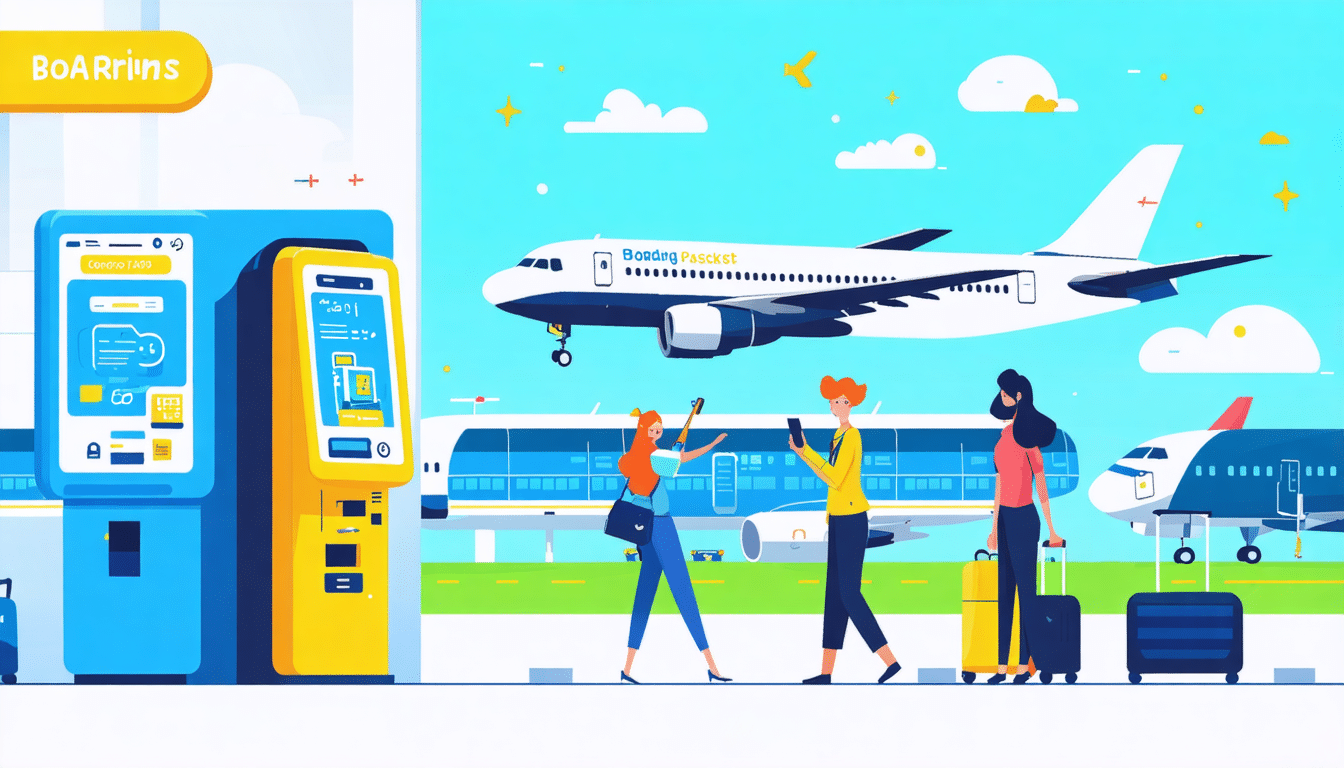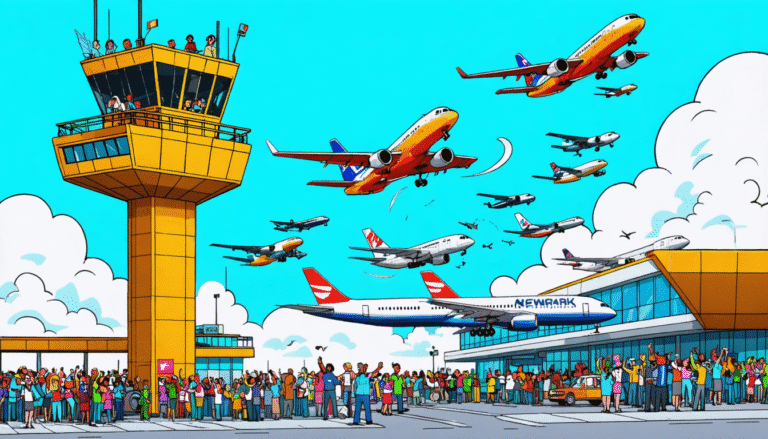The era of hassles related to passenger check-in and boarding passes is coming to an end. The digital revolution is transforming airport practices, with the emergence of innovative technologies. Soon, *travelers* could benefit from a simplified and dematerialized boarding process.
The implications are profound. The adoption of a *digital identity* could not only facilitate passenger movement but also enhance *airport security* standards. This upheaval radically changes the travel experience, rendering practices that have been entrenched for decades obsolete.
| Quick Summary |
|---|
| Digitalization of travel: Introduction of a digital visa to store passport information. |
| Possibility of eliminating boarding passes and check-in. |
| A travel pass will be downloaded to smartphones at the time of booking, automatically updated. |
| Facial recognition to pass through security checks without manual verification. |
| Airlines will be alerted by automated systems when passengers arrive at the airport. |
| Personal data will be deleted within 15 seconds following interaction with a checkpoint. |
| Improved management of delays with instant notifications for connecting flights. |
| Technological advancements needed for implementation: suitable infrastructure, advanced technologies. |
| The change is considered the most significant in 50 years, even surpassing the adoption of e-tickets. |
Revolution in the Boarding Process
The imminent transformation of the airline industry could mark a break from traditional practices of travel. The introduction of a *”digital travel credential”* by the International Civil Aviation Organization (ICAO) promises a considerable simplification of procedures.
Passengers could store their passport information directly on their mobile device, thereby facilitating their movement through airports. This radical change could render physical boarding passes and traditional check-in obsolete, replacing these processes with a dynamic *travel pass*, downloadable at the time of booking.
How the New System Works
With the implementation of this travel pass, the check-in process will no longer require manual interaction from passengers. The app will automatically update the reservation information, allowing for verification through *facial recognition* at the entrance to boarding areas.
Airlines will be informed of a passenger’s arrival at the airport only when their photo is scanned, thereby minimizing the need for prior check-ins. Advanced technologies will need to be deployed at airports to make this innovation a reality.
Implications for Security and Privacy
The integration of facial recognition technology into air travel raises concerns about privacy. The system developed by Amadeus ensures that user data will be deleted quickly after each interaction. This rapid deletion period of 15 seconds may alleviate some concerns related to data security.
The development of portable systems, enabling quick and secure interaction, adds a new dimension to airport surveillance issues. The challenge lies in balancing technological innovation with respect for privacy.
Management of Delays and Connections
Delays and connections are often overlooked in traditional airport systems. With new technologies under development, passengers who miss connecting flights due to unforeseen delays could automatically receive notifications containing their new flight information on their device.
This instant notification system would change how airlines manage cancellations and reroutings, making travel much smoother for passengers. The resonance effect of integrated systems could radically transform the travel experience.
A Heritage Revolution
The methodological shift within airlines represents a historic advancement. Amadeus considers this transformation the most significant in fifty years. The gradual adoption of modern systems, similar to those used by giants like Amazon, could redefine the customer experience.
Airport infrastructures will need to adapt quickly to these new technological requirements to ensure the success of this transition. Investment in interoperable and modern systems will become essential to enable this structural evolution.
Towards a Digital Future
The era of physical boarding passes and cumbersome check-in processes could very well be coming to an end. The advent of these cutting-edge technologies paves the way for a frictionless travel process. This change promises to enrich the passenger experience and modernize the entire airline sector.
Airlines must remain attuned to the evolving demands of the sector while ensuring optimal security. The growing tension between innovation and privacy protection will require meticulous attention to detail in the implementation of these new solutions.









